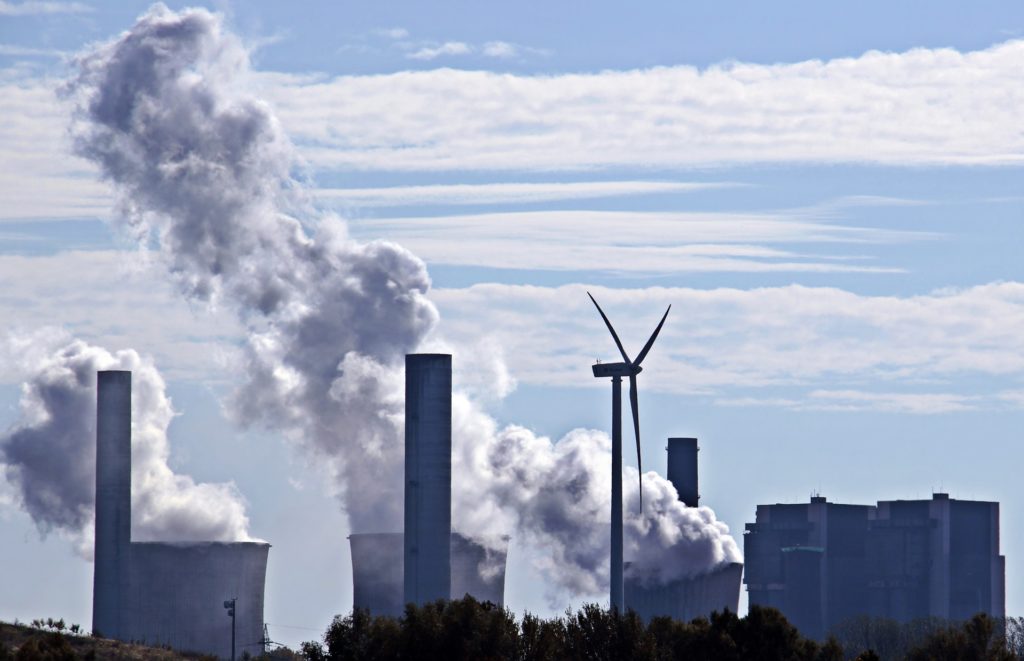Researchers at the Francis Crick Institute and University College London in the UK have found how air pollution can trigger the activation of cells with existing genetic mutations to form cancer.
While it has long been known that pollution can lead to an increased risk of lung cancer in people who don’t smoke, the exact reasons have remained unknown. Now, scientists have found a mechanism that may help explain how pollutants in the air can turn cells cancerous.
The researchers propose that particulate matter 2.5 micrometers (PM2.5) in diameter or smaller can induce additional changes in cells lining the airways that have mutations in the EGFR (epidermal growth factor receptor) or KRAS proto-oncogenes, which are commonly found in lung cancers like non-small cell lung cancer (NSCLC). Approximately half of people with lung cancer who are non-smokers have EGFR mutations.
Over 250,000 lung cancer deaths globally every year are attributable to PM2.5 pollution, which is typically emitted in vehicle exhaust and the burning of fossil fuels.
PM2.5 includes the smallest air pollutants and they are among the most dangerous as they can travel deep into lung tissue when inhaled. PM2.5 can then enter the bloodstream and lead to conditions like asthma, cardiovascular disease and other respiratory illnesses.
The research findings were presented at the European Society for Medical Oncology Presidential Symposium in Paris last week.
Related: World Health Day 2022: WHO Data Shows 99 Percent of People Breathe Poor Quality Air
The new research is significant as a recent World Health Organization (WHO) report revealed that 99 percent of people in the world are breathing poor quality air.
The researchers found that the incidence of lung cancers not caused by smoking was higher in places with higher levels of air pollution.
And although EGFR and KRAS mutations are commonly found in lung cancer not caused by smoking, they alone are not enough to trigger the cancer. In fact, one in every 600,000 cells in the lungs of a 50-year-old already contains potentially cancerous mutations.
The Double Hit
Having a mutation in one copy of either the EGFR and/or KRAS gene isn’t enough to lead to lung cancer. Most cancers follow the double-hit model where a mutation in the second copy of the gene is required for the cancer to form.
The new research shows that air pollutants can be that ‘second hit.’ However, instead of causing new mutations, the research reveals that PM2.5 pollutants can switch on existing mutations to cause cancer.
“We found that driver mutations in EGFR and KRAS genes, commonly found in lung cancers, are actually present in normal lung tissue and are a likely consequence of ageing,” Professor Charles Swanton, a scientist at the Francis Crick Institute and chief clinician at Cancer Research UK, who presented the findings, said in a news release.
Furthermore, inhaling PM2.5 leads to the release of interleukin 1 beta (IL-1β), a cytokine that causes inflammation and activates cells to repair damage.
Air Pollution and Lung Cancer: Possible Mechanism of Action Revealed
The researchers performed a combination of human and animal experiments to examine a potential link between PM2.5 pollution and cancer risk,
First, they analyzed epidemiological data from 463,679 individuals across several different countries. They performed ultra-deep genomic profiling of normal lung tissue samples and tissues exposed to PM (both human and mouse tissues) and examined the effects of the PM on tumor promotion in mouse lung cancer models.
Results of the investigations showed that PM2.5 levels were associated with an increased risk of EGFR mutated (EGFRm) NSCLC in England, South Korea and Taiwan, and an increased risk of mesothelioma, lung, anal, small intestine, glioblastoma (GBM), lip, oral cavity and pharynx and laryngeal carcinomas in samples from the UK Biobank.
Based on the results, the researchers suggest that “oncogenic mutations may be necessary but insufficient for tumor formation, and that the data reveal a mechanistic basis for PM-driven lung cancer in the absence of classical carcinogen-driven mutagenesis.”
The researchers found that exposure to air pollution made mice more susceptible to EGFR or KRAS mutations and led to an increase in the number, size and grade of cancers in the mice.
Additionally, the researchers were able to inhibit cancer formation in mice exposed to air pollution by using an IL-1β inhibitor.
The scientists say that their research provides evidence to limit air pollution and also opportunities for molecular targeted cancer prevention.
Cancer Prevention with a Pill?
Prof Swanton said this was the most exciting finding his lab had made, as it “actually rethinks our understanding of how tumours are initiated,” saying it could lead to a “new era” of molecular cancer prevention.
This means that a drug like an IL-1β inhibitor could potentially be used to prevent the cancer-causing effects of air pollutants like PM2.5. In other words, a cancer-blocking pill could be taken by people living in heavily polluted areas to protect against cancer.
And it isn’t just pollution that could have a preventative pill. There are hundreds of other carcinogens that are linked to cancer but their mechanism of actions are unclear.
“Pollution is a lovely example, but there are going to be 200 other examples of this over the next ten years,” said Professor Swanton.












Join or login to leave a comment
JOIN LOGIN